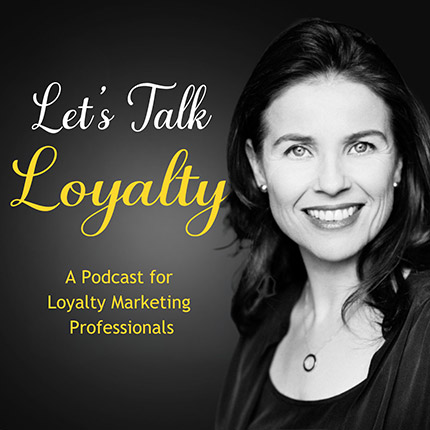Marketers have to look at all the different signals they’re receiving from consumers, even the more subtle ones, as the third-party cookie crumbles
A new eConsultancy report, in partnership with Cheetah Digital, entitled 2022 Digital Consumer Trends Index: Consumer Attitudes and Trends in Personalisation, Privacy, Messaging, Advertising, and Brand Loyalty, has revealed consumers are rewarding brands that make personalisation a priority. More than half of the respondents said they would trade personal and preference data to feel part of a brand’s community.
At the same time, there’s been a near 50% increase in consumers who feel frustrated with a brand that does not recognise their unique desires and needs in its personalisation strategies. Furthermore, real-time offers and content can be 10 times more effective than traditional outbound marketing campaigns.
Chris Muscutt, Head of MarTech at PepsiCo, and Tim Glomb, VP of Content and Data at Cheetah Digital have unveiled what it takes to drive more personalised experiences and drive loyalty in today’s data-driven, digital environment.
Loyalty and data: challenges and opportunities
Big organisations like PepsiCo have mountains of data, and it can be hard to find and make sense of it all. While the process improves as technology advances, Chris says, it’s still a struggle to secure insights.
“Marketers have to look at all the different signals they’re receiving from consumers, even the more subtle ones, as the third-party cookie crumbles,” Chris says. “They have to prioritise the data that is useful in their marketing strategies and then focus on developing those data-collection opportunities. With that, marketers can start to build impactful strategies toward improving the customer journey.”
For maximum impact, Chris calls on brands need to invest in and bring together three game-changing loyalty drivers, including:
- Real-time personalisation: This allows brands to learn more about consumers to deliver a better experience every time. It’s about understanding what the consumer intends to do in that specific moment and includes monitoring web interactions as well as mobile SMS, web, app, social, point of sale, etc. This personalisation strategy ensures real-time data is captured from these touchpoints and brought back to the platform to be appended to the consumer’s profile.
- Journey orchestration: Journeys should be simple in nature; think triggered events or a multi-pronged approach that unfolds over time based on consumer behaviours and preferences. Personalised customer journeys lead to growth in interactions, increasing the likelihood of purchases and conversions.
- Intelligent offers: Offer management is being redefined by modern marketers. Leveraging the power of machine learning and analytics to score content and determine, not only the right offer, but the best sequence of offers, time and optimal context and channel is something that can be greatly automated at scale. This can drive efficiency and efficacy.
“There’s definitely room for marketers to improve their efforts,” Chris says. “Making things relevant is one thing, but true personalisation is another journey altogether. There can be pockets of both, but they’re not the same thing. That’s where the gaps come — is it personalisation, contextualised marketing, or journey planning? Many brands still have a long road ahead before they achieve true personalisation.”
Brands need to have a single, accessible view of the consumer
Customer data resides in systems like analytics, email, mobile, campaign management, point-of-sale, and social – areas that weren’t designed to be integrated. Overcoming this challenge of disparate systems can be as simple as a customer data platform (CDP), which the CDP Institute defines as “packaged software that creates a persistent, unified customer database that is accessible to other systems”.
Tim Glomb, VP of Content and Data at Cheetah Digital, says as a platform that is CDP-certified from the CDP Institute, Cheetah Digital does more than just bring all the data together. It provides marketers with a single, accessible and actionable view that can be used to drive meaningful engagement with consumers.
“What I like about our platform, the Cheetah Engagement Data Platform (EDP), is that you can dynamically change an experience based on the data that exists. Essentially, you can change the journey,” he says.
“What differentiates the Cheetah EDP from a traditional CDP is that it provides marketers with a holistic view of the customer, machine learning, native omnichannel touchpoints, and solutions that drive customer acquisition, loyalty, and retention. Together, these capabilities provide marketers with solutions to create value throughout the customer lifecycle, from acquiring customers to watching them become brand advocates.”
Discover more insights from Chris Muscutt, Head of MarTech at PepsiCo, and Tim Glomb, VP of Content and Data at Cheetah Digital here.
About Cheetah Digital
Cheetah Digital is a cross-channel customer engagement solution provider for the modern marketer. The Cheetah Digital Customer Engagement Suite enables marketers to create personalised experiences, cross-channel messaging, and loyalty strategies, underpinned by an engagement data platform that can scale to meet the changing demands of today’s consumer. Many of the world’s best brands, including Starbucks, Hilton, Neiman Marcus, Levi’s, and Williams-Sonoma trust Cheetah Digital to help them drive revenue, build lasting customer relationships, and deliver a unique value exchange throughout the customer lifecycle. To learn more, visit www.cheetahdigital.com.

